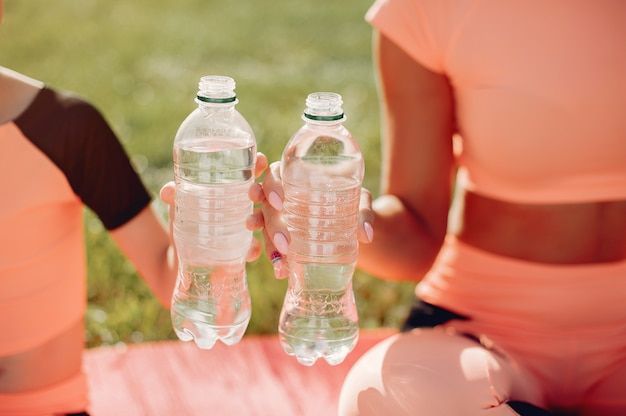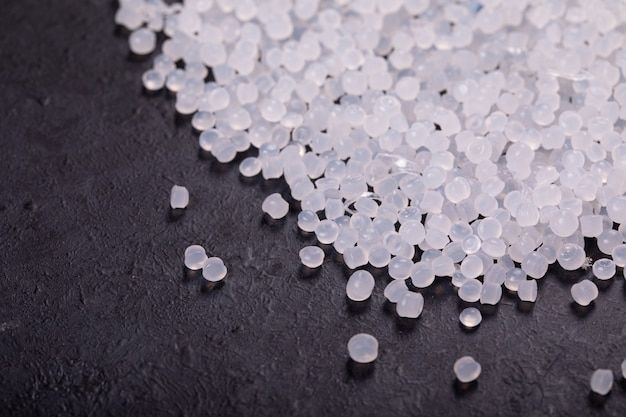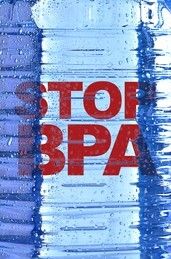
Is PET Bottle Safe for Drinking Water?
Have you wondered if plastic bottles are safe for drinking water? Even if it’s the first time to use it, it still arouses most people’s curiosity. As we know, most water bottles are made of PET plastic, is PET bottle safe for drinking water? And is it safe to refill plastic water bottle? Today I will show you everything that you are curious about in this article.
What Is PET Plastic?
Natural PET is a transparent type of plastic with a gloss finish. It has all the benefits of glass - being a strong inert material that does not react with foods. It is resistant to attack by microorganisms, such as germs, fungi, and parasites, and does not biologically degrade when exposed to excess moisture and air for an extended period.
Interestingly, unlike glass, PET is lighter, more durable, and a more cost-effective option that is strong and shatterproof. These unique properties have ensured PET is rapidly becoming the world's favorite packaging material, particularly for food and beverages.
Is PET Plastic BPA Free?
Are PET plastic bottles BPA-free? Yes, PET plastic bottles don't contain BPA. PET plastic (polyethylene terephthalate) is the plastic most commonly used in single-use plastic water bottles. It is BPA-free, but PET is also associated with many of the same health risks such as stunted growth, reproduction issues, low energy levels, body balance issues, and inability to process stress.
They're commonly used for water, drinks, and food containers. Even though PET isn't biodegradable, it's eco-friendly because it's fully recyclable and doesn't release harmful substances into food or drinks. As PET bottles don't have BPA, they're safe for food and drinks. They're approved by the US FDA, Health Canada, and the European Food Safety Authority for packaging food, making plastic utensils, and storing water.
Is PET Bottle Safe for Drinking Water?
A PET bottle is absolutely safe for drinking water. Pet bottles, made of PET plastic, are commonly used for single-serve bottled water. PET plastic does not contain harmful chemicals like phthalates or BPA, which means it doesn't release these substances into the water. The FDA and similar regulatory bodies worldwide have approved PET plastic as safe for food and drink packaging for over 30 years. It's widely used for various food items, such as peanut butter, soft drinks, juices, beer, wine, and spirits. Even though BPA isn't part of PET, international regulatory agencies generally consider BPA safe, with several countries and the FDA supporting its safety.
Is It Safe to Refill Plastic Water Bottles?
Most manufacturers recommend using them just once because they can hold harmful bacteria. Bacteria in these bottles pose a bigger risk than chemicals leaking into your drink.
Simple acts like touching the bottle with your mouth can quickly grow bacteria. Even if you leave a drink unfinished at room temperature, it can gather a lot of bacteria throughout the day. To stay safe, it's better to reuse plastic bottles only occasionally and clean them well because germs spread fast.
Moreover, using a bottle repeatedly causes wear and tear, creating cracks where more bacteria can grow. Considering this, it might be a good idea to avoid plastic bottles altogether and opt for a reusable one instead.
Health experts advise against reusing plastic bottles (like PET or PETE), such as disposable water, soda, or juice bottles. They're safe for a single use but should not be reused. Research suggests these containers might release DEHP, another potential cancer-causing substance when damaged or not in perfect condition.
Is It OK to Freeze Plastic Water Bottles?
Some people think freezing water bottles is risky due to plastic chemicals, but there's no proof to be evident that it is not ok to freeze plastic water bottles. Plastic doesn't contain dioxins, and even if it did, freezing seems to stop the chemical release. We regularly freeze food in plastic bags or containers, and most people find them safe for freezing.
Advantages of PET Plastic Water Bottle
Except for its safety in drinking water, PET plastic water bottle has many other advantages than glass or other plastic as the following list.
Energy Savings:
PET packaging uses less energy and resources than glass during production.
Recyclable:
PET bottles are 100% recyclable and are now made 30% lighter due to modern manufacturing.
Chemical Resistance:
PET creates a strong barrier, preventing oxygen from passing through, and it doesn't react with water or food.
Shatterproof:
Unlike glass, PET plastic won't break, making it safer and cheaper to transport.
Flexibility:
PET can be shaped differently at a lower cost than glass, allowing unique packaging designs to stand out on store shelves for various products.
Best PET Plastic Supplier - Wkai
Wkai polyester chips are great options for water drinking bottles, our PET bottle plastic can meet the standards of food packages. Polyester chips are widely used in the production of bottle packaging containers, such as water bottles, beverage bottles, edible oil bottles, cosmetic bottles, etc. What’s more, the ISO/ICE17025-approved laboratory is equipped with advanced quality control equipment to support a high quantity and quality of PET plastic for you.
Conclusion
In summary, PET (polyethylene terephthalate) plastic bottles, commonly used for drinking water, are considered safe as they do not contain harmful chemicals like BPA. Approved by global regulatory bodies for food and drink packaging, Wkai PET offers advantages such as recyclability, durability, and resistance to reacting with contents. While safe for single use, caution is advised against frequent reuse due to potential bacterial growth and the possibility of substance release from damaged bottles. Overall, PET bottles remain a widely accepted and safe choice for drinking water, provided they are used as intended.



